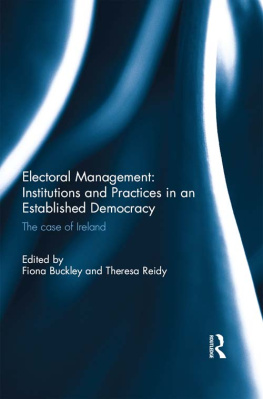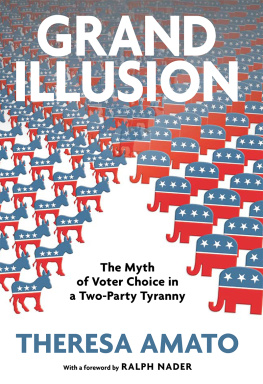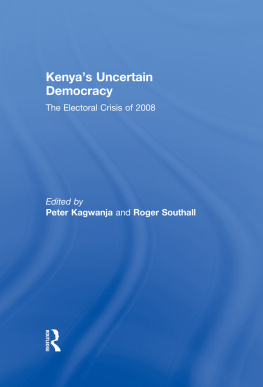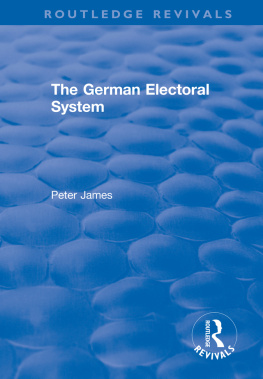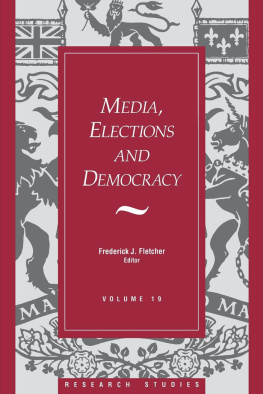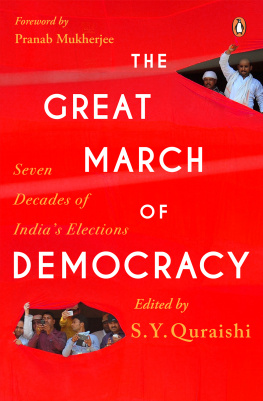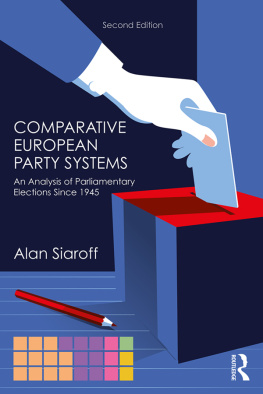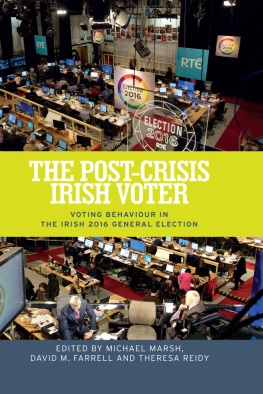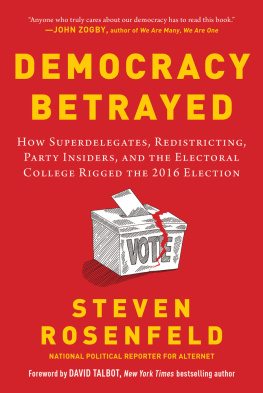Fiona Buckley - Electoral Management: Institutions and Practices in an Established Democracy: The Case of Ireland
Here you can read online Fiona Buckley - Electoral Management: Institutions and Practices in an Established Democracy: The Case of Ireland full text of the book (entire story) in english for free. Download pdf and epub, get meaning, cover and reviews about this ebook. City: London, year: 2018, publisher: Routledge, genre: Science / Politics. Description of the work, (preface) as well as reviews are available. Best literature library LitArk.com created for fans of good reading and offers a wide selection of genres:
Romance novel
Science fiction
Adventure
Detective
Science
History
Home and family
Prose
Art
Politics
Computer
Non-fiction
Religion
Business
Children
Humor
Choose a favorite category and find really read worthwhile books. Enjoy immersion in the world of imagination, feel the emotions of the characters or learn something new for yourself, make an fascinating discovery.
- Book:Electoral Management: Institutions and Practices in an Established Democracy: The Case of Ireland
- Author:
- Publisher:Routledge
- Genre:
- Year:2018
- City:London
- Rating:4 / 5
- Favourites:Add to favourites
- Your mark:
Electoral Management: Institutions and Practices in an Established Democracy: The Case of Ireland: summary, description and annotation
We offer to read an annotation, description, summary or preface (depends on what the author of the book "Electoral Management: Institutions and Practices in an Established Democracy: The Case of Ireland" wrote himself). If you haven't found the necessary information about the book — write in the comments, we will try to find it.
Over the last three decades, electoral reform has moved centre stage in both new and established democracies. In Europe, the post 1989 democratisation wave brought important debates about electoral system choice and free and fair elections. But electoral reform also emerged on the agenda in a number of established democracies. Declining political participation, corruption scandals and party finance irregularities put the management of the democratic process on the political agenda. Election administration problems such as those in the Gore Bush election of 2000 thrust electoral integrity into the global political spotlight. In this edited collection, we are primarily concerned with the mechanics of how elections are run. Elections are complex administrative tasks and as International IDEA points out, they are also usually administered against a politically charged backdrop. This book brings together specialists to consider the election management process using diverse theoretical approaches and, addressing both emerging and perennial election debates such as the role of voter advice applications, election management bodies, districting, ballot design and media practices in the coverage of elections. The volume includes a number of comparative chapters which utilise data from large international datasets (VDem and CSES), several Irish case studies and an important Dutch study of voter advice applications with pioneering data. Collectively, the chapters provide insights into election administration in Ireland and many other established democracies. This book was previously published as a special issue of Irish Political Studies.
Fiona Buckley: author's other books
Who wrote Electoral Management: Institutions and Practices in an Established Democracy: The Case of Ireland? Find out the surname, the name of the author of the book and a list of all author's works by series.

